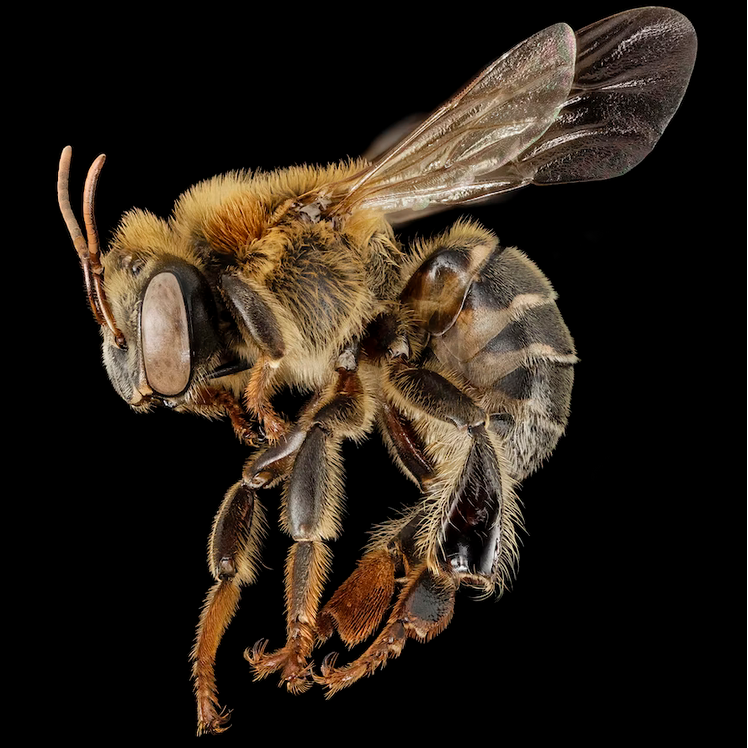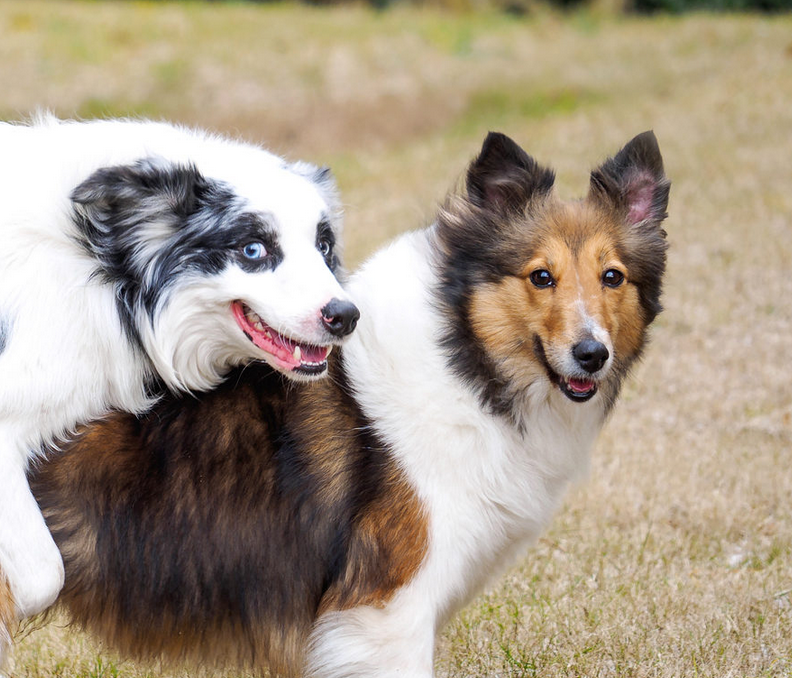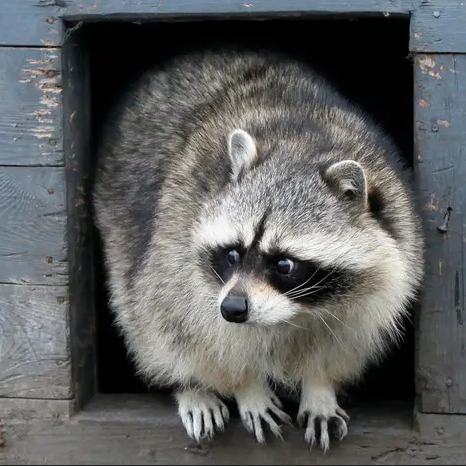Are animals people?

As zoos, we’re people who tend to love and care about animals. We see animals as creatures with personhood and autonomy, who have their own wants and needs, and can make their own decisions. But, in the same way that humans and dogs and horses are distinct creatures, there’s a big difference between one of those and an animal like a bird, or a lizard, or even an insect. As a zoo, what’s the correct stance on trying to give personhood to the rat breaking into my pantry, or a mosquito trying to bite me? Is every single animal worthy of the same respect that we treat our loved ones with, or are some animals just different? While I don’t think there’s any definite answer, I think it’s definitely a question worth talking about. So let’s talk about it.
When it comes to classifying personhood, the first thing that I jump to is intelligence. An animal like a horse is generally considered to be much smarter than an animal like a gecko. Does that mean that a horse is more of a person than gecko? What about the comparison between a dolphin and a dog? Dogs are smart, sure, but dolphins are generally considered to be more intelligent. Does that mean that dolphins are more people than dogs? If that’s true, is there a cutoff line for the bottom limit of what personhood is?
I don’t really like using intelligence as a qualifier. There’s a degree of variation when it comes to the intelligence of any animal, humans included. If that’s the biggest factor, you get into some really weird issues in the middle. If some mice, for instance, are smart enough to pass whatever test we use to determine intelligence but others aren’t, how do you go about determining that before deciding whether or not to treat said mouse like a person? You could do it based off of species, but if 5% of a population meets the threshold, that’s a pretty massive number of mice still. Plus, speaking of the threshold, what exactly would it look like? Object permanence? Tool usage? Memory? Defining intelligence based off of our human definition is already a huge handicap for a lot of species. We can barely even understand intelligence among other humans. Just look at all the issues with IQ tests! It’s just as easy to say that since a monkey can remember longer patterns much faster they’re more intelligent than humans, or because sharks can see fish with literal electric pulses in their brains they’re smarter too. But I doubt that those factors are enough to sway many people to shark supremacy. Intelligence means too many things, and none of it really means anything in the end due to individual differences, so it seems like using intelligence to determine personhood is a bust. Let’s try something else.
One big thing that’s determined pretty much everything about everything is evolution. We all evolved from sea sludge into a wild and diverse global ecosystem. But, not all animals took the same evolutionary path. One major difference between a lot of animals is the way they reproduce. I’m not talking about that, you dirty minded you, I mean in terms of their fertility cycles. There’s a sliding scale of options here. Some animals have hundreds of children in a brood, and produce as many broods as possible in order to continue on with quantity over quality. Other animals have fewer children and tend to invest much more time and energy in raising them in order to try to prepare them for the world so they can survive on their own.
Along this scale, there’s an interesting trend. Animals that have less children less often tend to be larger, more intelligent, and live longer. Evolutionarily, this is because if you’re going to invest all this time in child rearing, you need to be sure that it works. Animals on the other end of the scale tend to be more instinct based, with little to no parental instruction, and much more self reliance. They also tend to just be smaller in general. Humans, based on this scale, are much more towards the fewer children side. Most humans only have one child per birth, and can only give birth up to around 10 times, with a gestation period nearly a year long. Is there an argument that animals that focus on mass production as a means of continuing the species are less person-y than those who act as parents? There’s certainly some logic there. While there’s no way to know for sure, if a queen bee has 2,000 bees per birth, it would seem like she’d be less emotionally invested in those children, while if a dog only has a dozen they’re more emotionally attached to each individual. That level of care and empathy certainly seems like an indicator of personhood. Unfortunately, however, it’s not a perfect system either.
Another answer that could help is whether or not an animal has consciousness, or a sense of self. Do they understand that they are a being independent of other beings, and have a higher level of thought necessary to view themselves as an individual? This can be a very complicated question to answer. One way that we currently use frequently is the “Mirror Test.” The test goes as follows. While asleep or otherwise unconscious, researchers put some kind of mark on the animal that they can’t see normally. Then, they put that animal in front of a mirror. If they try to remove the mark or groom the area, then they pass. Some animals have clearly excelled at this task. Apes, dolphins, and some corvids easily understand that the animal they’re seeing in the mirror is themselves. This would imply that they have an understanding that they are in fact an individual, who’s able to recognize themselves.
While this test is fairly straightforward, there are some issues with it. For instance, it only works on animals that rely primarily on visual stimuli. There’s also the issue of motivation. Elephants, frequently considered to be fairly smart animals, technically have failed the mirror test. That said, that could just as easily be because they see the mark and don’t really care about it enough to try and remove it. The mirror test can definitely be a helpful tool in understanding how animals perceive themselves in the world, but it’s not enough to answer whether an animal is sentient.
Another option in the same area is “Extended Consciousness.” This is the idea that an animal can learn and grow from past experiences in order to make better decisions about situations in the future. This is distinct from training in that training is an “if this then that” reaction, while learning is much more open ended. If an animal has the ability to learn from their mistakes, grow as an individual, and become better, the argument is that that shows they have a higher level of thinking and consciousness.
And to reflect that back to the discussion at hand, animals that have a higher level of consciousness could be seen as more person-like than others. While I do think this is a great starting ground when trying to solve for each individual animal, it’s also extremely complicated. Different tests, different animals are going to excel at, while others are going to fail—not because of consciousness, but because of their unique evolutionary advantages. For example, for a long time, it was assumed that dogs weren’t self aware because they didn’t pass the mirror test; however, when the test was recreated using smell instead of sight, canines were able to recognize their own smell as opposed to other dogs’ smells.
There’s approximately 7.5 billon species on the planet. Finding a standardized way to test for consciousness seems almost impossible without a frankly astonishing amount of time and money.
Shifting gears for a minute, I want to talk about why any of this matters. Who is and isn’t a “person” extends back far before the animal rights movement. “People” is a term that’s used to describe a being that’s important. People matter. And everything that isn’t “people” can be seen as “property.” We can see this clearly reflected in the women’s suffrage movement, as well as the anti-slavery movement. For a long time, women were considered property of the men that they were married to, and as such the rhetoric around that time was that they weren’t really considered people. They were trophies. Hence where the term “trophy wife” comes from. A good wife was a status symbol. Slaves, by the same token, were just workers. They weren’t seen as “people.” They were seen as tools to be used and discarded. And now, we’re viewing animals in the same way. Factory farms see pigs, cows, and chickens as just a material. In one end as a product and out the other as a different one. Livestock aren’t people. They’re property. But, if a cow was a person, it starts to reframe the whole situation. You’re not slaughtering “it,” used to describe a thing. You’re slaughtering “them,” used to define a person. Once you start giving animals personhood, it turns from factory farming to genocide. But, sometimes that’s necessary for modern life. If termites infest your home and will make it structurally unstable, calling an exterminator is necessary. It’s not as though the termites have done anything wrong, they’re just looking for food, and your house happens to be made of it. If we decide that termites definitively aren’t people, the killing of that colony gets planted firmly in the camp of “pest removal” as opposed to “mass murder.” But what if it wasn’t termites? What if it was ants? Or rats? Or a family of possums that move into your attic? The killing of cows and the killing of termites is arguably the same thing, so what makes it different?
This is honestly a very complicated question, no doubt outside of the scope of what this magazine is trying to do. But, I wanted to talk about it because I think it’s interesting. And so, I decided to ask some of my friends what they thought. By and large, the most common response was that “all animals are people.” However, when pressed on whether or not specifically certain animals were people, the responses were a little bit more mixed. When asked specifically where the line between person and not person is, one friend said:
“It would come down to some form of sentience. Obviously the mainstream perspective on the line there is absurd. I’m not sure where my line would be exactly nor do I think it’s really meaningful to determine, if the rhetoric is just to treat other intelligent life with respect and kindness.”
And while I love that sentiment, at the same time “respect and kindness” can mean a lot of things in different situations. Another friend when asked if all animals should be considered people said:
“I think they should. We can debate about which animals are people-y enough to be considered people, but in terms of how we regard them for the purposes of determining how to treat them, we should begin thinking about them all as people. The status of non-personhood explicitly grants us the moral right to treat them as less than human. As long as we’re thinking of animals as “less than human,” we’re not giving their lives and experiences the same moral worth as our own.”
But at the same time, do other animals have the same moral worth as our own lives? If I had to decide whether to kill a fruit fly or an elephant, I would kill the fruit fly every time. In fact, I would probably kill a hundred fruit flies before picking the elephant. And I don’t even like elephants especially. The idea that every life is worth the same amount is a noble one, and I think that it’s a great goal, but it’s hard for me to believe that idea when a fruit fly lives for 40 to 50 days and an elephant can live for up to 70 years.
I really don’t have an answer to this question. I was hoping that after the time, research, and conversations that went into this article I would, but honestly I think I have even less of an answer. This doesn’t seem like an impossible question. I think there probably is some line somewhere that we can draw with more time and more technology put into the problem. Maybe someday we’ll be able to read animals’ thoughts, and that will allow us to understand which animals understand personhood and which don’t. I think at the end of the day, even if an animal isn’t a “person,” that doesn’t mean that it’s right to be cruel to them. Every piece of the ecosystem is important to some degree, and if you can do your best to try and keep that in mind, I think you’re doing a pretty good job treating animals with respect, even if you slap a mosquito every now and then.
But, I would love to hear what you think. If you’ve made it to the end of this article, I’m sure you have some thoughts on what animals are and aren’t people, whether it’s all, some, or even none. I always plug the discussion thread and Discord at the end of these things because in the end I hope that articles like this spark conversation, but this time seriously, please tell me what you think. I hate having unanswered questions, and this is something I’ve thought about for a while, and probably will continue thinking about until someone smarter than me comes up with a better answer. Anyway, now this feels like a YouTuber outro so don’t forget to like comment and subscribe, and I’ll see you in the next one!
Article written by Tarro (November 2022)
Find them at https://twitter.com/hereforthezoo
Questions, comments or concerns (!!!)? Find the discussion thread over at ZooCommunity, or join our Discord!




